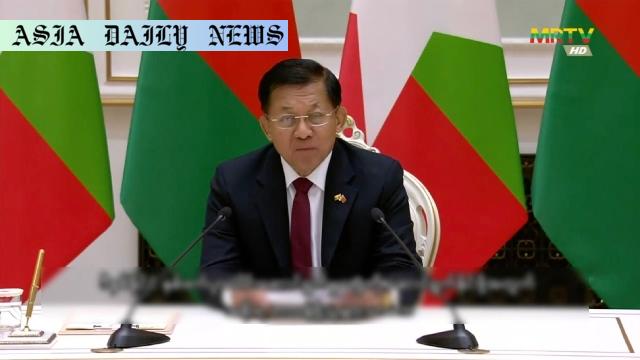Myanmar Election: Military leader announces the first timeframe for the general election amid ongoing conflicts and widespread skepticism.
- Myanmar’s military plans to hold a general election in December 2023 or January 2024.
- Military leader Min Aung Hlaing claims the election will be ‘free and fair.’
- Pro-democracy groups dismiss the election as ‘illegal and fraudulent.’
- Tensions remain high following the 2021 coup and subsequent fighting.

Introduction: Myanmar’s Upcoming Election Plans
Myanmar’s military leader, Senior General Min Aung Hlaing, has announced that the country will hold its much-debated general election either in December 2023 or January 2024. This announcement marks the first concrete timeline provided by the Myanmar military since it took over power in a coup in 2021. The general, speaking on state-run television, promised that the elections would be “free and fair.” However, the statement has been met with widespread skepticism from both domestic and international observers.
Background: The Coup and the Current Political Climate
The backdrop of this election announcement stems from Myanmar’s tumultuous political landscape. In February 2021, the military staged a coup, overthrowing a civilian government led by Aung San Suu Kyi, claiming alleged fraud in the 2020 general elections. The coup led to the detention of key pro-democracy leaders and provoked widespread unrest across the nation. Since then, the country has seen escalating violence, with clashes between the military and opposition forces in border areas becoming a daily reality. The opposition National Unity Government (NUG), along with pro-democracy activists, maintains that any elections orchestrated by the military would be illegitimate and a means to consolidate power rather than restore democracy.
Free and Fair Elections? A Matter of Perspective
Despite assurances of “free and fair” elections, critics argue that the military’s grip on power and ongoing suppression of dissent leave little room for democratic processes. Experts highlight that election preparations are taking place under the shadow of martial law, arrests, and continuing violence against civilians. The opposition has repeatedly called for international intervention, labeling the proposed elections as a facade aimed at legitimizing the military’s rule rather than providing a genuine opportunity for public participation.
International Reaction and the Role of External Players
The international community has expressed deep concern over Myanmar’s deteriorating human rights situation. The United Nations and Western nations have imposed sanctions on military leaders and urged them to engage in real dialogue with opposition forces. However, partnerships like the one witnessed between Belarusian President Alexander Lukashenko and General Min Aung Hlaing during their recent meeting in Minsk show that global opinions on Myanmar are polarized. Neighboring countries in ASEAN remain divided on how to address the crisis, further complicating the situation.
The Larger Impacts on Myanmar’s Future
The consequences of Myanmar’s internal unrest are far-reaching, affecting its economy, society, and international standing. Businesses remain hesitant to invest in a country marred by instability, while thousands of civilians have been displaced due to clashes between the military and resistance forces. For the people of Myanmar, the prospect of an election offers a glimmer of hope but is overshadowed by fear that it could further cement military authority. The coming months will determine whether the announced elections bring any meaningful change or deepen the existing chasm between the military and pro-democracy forces.



Commentary
The Complexity of Myanmar’s Election Promise
The announcement by General Min Aung Hlaing about holding elections in December 2023 or January 2024 is both significant and troubling. On the one hand, it provides a timeline for what many hope will be a step toward restoring some semblance of democracy in Myanmar. On the other hand, the very same military that has suppressed dissent and silenced opposition voices is in charge of organizing these elections. This creates an inherent conflict of interest, making it difficult to see how such elections could be fair or transparent.
Pro-democracy Opposition and Their Legitimate Concerns
The opposition’s outright rejection of the proposed elections as “illegal” is not unjustified. Coming off the back of the military coup in 2021, which dismantled a democratically elected government, this election feels less like a democratic process and more like a facade. For pro-democracy forces, including the National Unity Government, any military-led electoral process is tainted by the bloodshed and rights abuses that have been ongoing since the coup. Their reluctance to acknowledge such elections highlights the deep fractures within Myanmar.
Global Responsibility and Myanmar’s Path Forward
While the international community continues to impose sanctions and voice condemnation, there is a pressing need for more meaningful action. The ASEAN bloc in particular needs to find a united strategy to address Myanmar’s spiraling situation. The elections, if carried out under current conditions, risk entrenching the military regime rather than facilitating democratic change. This precarious situation, affecting both Myanmar’s citizens and regional stability, cannot be ignored. Elections should be a tool for unity and progress, but in this case, they may simply deepen existing divides.